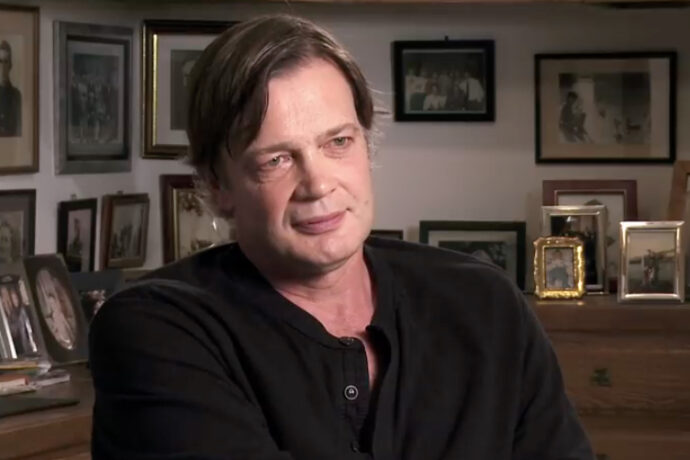Every day brings a new tsunami of bullshit, a giant wave of lies flattening our discourse to sticks and rubble. The moment it seems that we might recover—find a moment’s peace for real thought—another great wave slams into shore. While people of good faith struggle to stay afloat, up to their necks in stinking mendaciousness, it is easy to forget that the flood of bullshit did not arrive with the election of Trump: he just turned up the wave machine. Some flavors of bullshit, in fact, seem to be ineradicable, resurfacing over the decades with shocking stubbornness—for instance, the fraudulent connection between vaccines and autism.
In February of 1998, the Lancet, a leading British medical journal, published an article with the deceivingly scientific-sounding title of Ileal-lymphoid-nodular hyperplasia, non-specific colitis, and pervasive developmental disorder in children. Its authors claimed to have studied 12 children who suffered both from inflammatory bowel disease and a sudden onset of autism. According to its lead author, Dr. Andrew Wakefield, eight of the children began to exhibit their behavioral symptoms—a sharp regression in language ability and social skills—within 14 days of receiving the Measles Mumps Rubella (MMR) inoculation.
The story, for obvious reasons, was picked up by the worldwide media; Wakefield became famous overnight. But subsequent investigations by Brian Deer, a British journalist, revealed that the Lancet paper was a fraud. (Just one example: the onset times were almost all fudged.) Deer also discovered that Wakefield had a deep financial motive in seeing the MMR vaccine withdrawn, as he was in the pocket of a lawyer looking to develop the British version of a class-action suit. Over the course of Wakefield’s “research,” he earned £435,643 in addition to his hospital salary; meanwhile certain companies that Wakefield had an interest in were filing vaccine- and autism treatment-related patents.
Wakefield sued Deer for libel and lost—which, in Britain, means that Wakefield was responsible for both his own and Deer’s court costs. Then Wakefield lost his medical license (or in the lovely British locution, was “struck off”). But the damage was done. Vaccination rates in Britain plummeted; diseases once thought eradicated have reappeared to threaten—and occasionally take—young lives. Although British vaccination rates seem to be recovering, a core of credulous parents remain convinced that vaccines are a greater danger to childrens’ health than infectious diseases that have taken countless millions of lives. In disgrace, Wakefield fled the UK for Texas, where he continues, shockingly, to assert his innocence, and that the MMR vaccine is a threat to children.
What then are we to make of The Pathological Optimist, a new documentary that tries to present Wakefield as crusader for truth, an almost Christ-like victim of Big Pharma? How can a critic be objective about a movie that, for all its skill and earnestness, seeks to repair the reputation of a con artist?
The Pathological Optimist is ostensibly the story of another lawsuit. In 2012, Wakefield sued Brian Deer and the British Medical Journal, which published a follow-up to Deer’s earlier reports. I don’t think I’m spoiling anything by noting that Wakefield fails here as well, since the Texas courts decide that they don’t have jurisdiction. That’s no surprise, because the documentary is a blatant attempt to sew together the tattered remnants of Wakefield’s reputation.
The movie opens with Wakefield practicing yoga (since, presumably, only nice people do yoga). It ends with Wakefield, after having to drop the lawsuit, chopping wood in evident frustration. In between, we see Wakefield as the family man, pottering around with his loyal wife, Carmel, and watching his son’s rugby practice; we see Wakefield as the deeply caring (former) medical man, receiving the adulation and support of concerned parents; we see Wakefield, addressing the camera, repeating, in reasonable tones, his already resoundingly disproven medical and legal arguments.
In other words, we get oceans of bullshit. The prevarications begin almost immediately, with Wakefield, in voice over, discussing the “allegations” of fraud, which the British medical authorities might more accurately refer to as “facts.” Later, Wakefield tells a rapt audience that they don’t see any scientists investigating the supposed connection between vaccines and autism because “it’s the end of their career”—this shortly after the documentary itself notes that 100 subsequent experiments failed to find any support for Wakefield’s own “findings.”
My personal favorite is straight out of the conspiracy theorist’s handbook, when Carmel Wakefield asserts that Amy Meachum, the Texas judge, has ruled against them because her husband Kurt is a “lobbyist for the vaccine industry.” A little Internet sleuthing reveals that Kurt Meachum’s client is in fact the Texas Academy of Family Physicians, which strikes me more as a professional development organization than a front for Big Pharma.
To provide a whiff of objectivity, The Pathological Optimist does make some attempts to show the other side. Brian Deer apparently declined to participate directly in the documentary, but there are quite a few clips of him from British and American TV. Deer does indeed come across as kind of pissy and smug, like the brilliant kid in your high school who was contemptuous of anyone who liked sports. But while he may be a bit objectionable on camera (he’s better on the page) there is nothing in this documentary that convincingly demonstrates that any of Deer’s allegations were false.
One very strange thing about this film is the way that Wakefield’s hair keeps changing. In certain scenes it looks like he cuts it himself without the benefit of a mirror; in other scenes he sports suspiciously unmoving locks. And then it occurred to me: he wears a wig. This may strike the reader as ad hominem, or the sour grapes of a bald author. Perhaps. But it does exemplify Wakefield’s tendency to pretend that he has what he so obviously lacks—whether it’s integrity or a hairline.
I’m writing this on the eve of Yom Kippur, when Jews are adjured to be extremely conscious of the effects their words have on others. So I don’t say this lightly: The Pathological Optimist is a flagrantly irresponsible film. Shame on its creators for adding to the tsunami.





